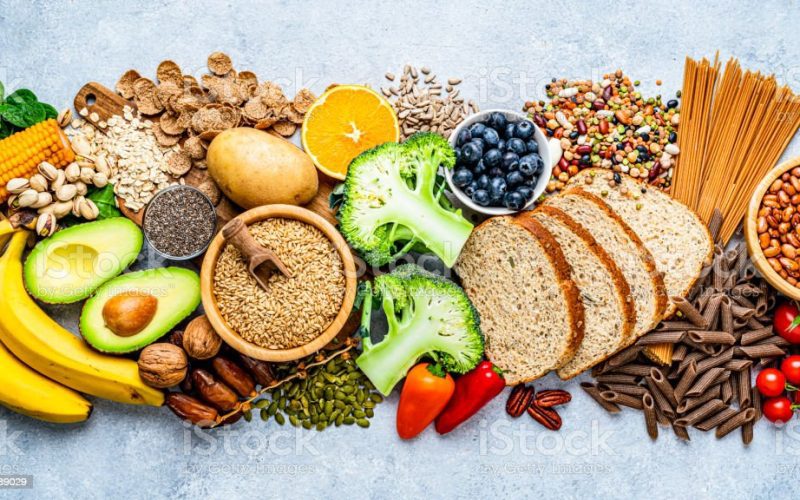Have you ever wondered why your diet plan isn’t working, even though it worked for your friend? The answer is simple: one size doesn’t fit all when it comes to nutrition. As we age, our bodies undergo different changes that affect our nutritional needs. From infants to seniors, each stage of life requires a unique set of nutrients to maintain optimal health and wellbeing. In this blog post, we’ll explore the importance of eating for your age and provide tips on how to ensure you’re getting the nutrition you need. So grab a healthy snack and let’s dive in!
The Different Nutritional needs of Infants, Children, Teens, Adults, and Seniors
Infants, children, teens, adults, and seniors all have different nutritional needs that are specific to their age group. For infants, breast milk or formula provides essential nutrients for growth and development. As they transition to solid foods, it’s important to introduce a variety of fruits, vegetables and whole grains.
Children need nutrient-dense foods that provide the energy necessary for physical activity and brain development. Snacks should be wholesome rather than processed high-sugar options which can lead to unhealthy weight gain.
During adolescence years (teens), rapid growth spurts require an increased intake of protein-rich foods like eggs or lean meats as well as calcium for bone health such as dairy products like cheese.
Adults also have their own set of nutritional requirements including fiber-rich diets with plenty of whole grains along with healthy fats found in avocados and nuts should be consumed regularly while avoiding sugary drinks.
Seniors may experience decreased appetite so nutrient-dense foods are crucial to maintain optimal health during this stage of life. Foods rich in vitamins D, B12 and calcium help protect against osteoporosis whereas adequate hydration is necessary due to decreased thirst sensation at this age range.
Why Diets Don’t Work for Everyone
Diets have been in the spotlight for many years, with various fads and trends coming and going. However, what works for one person may not work for another. The concept of a “one size fits all” diet is simply unrealistic.
Firstly, our bodies are unique; we all have different metabolisms which affect how our bodies process food. Therefore, it’s essential to understand that diets don’t always work for everyone as they fail to account for each individual’s specific nutritional requirements.
Secondly, diets can be unsustainable and even harmful in some cases. Many people view diets as short-term solutions to their weight loss goals without considering the long-term effects on their health. Fad or crash diets often lead to feelings of deprivation and guilt when we inevitably fall off track; this cycle can be detrimental both physically and mentally in the long run.
Dietary needs change throughout our lives with age being a significant factor affecting nutritional requirements. What worked when you were young might not work now or keep you healthy in your later years.
Adopting good eating habits tailored towards an individual’s body type while maintaining balance is more sustainable than following an extreme diet plan that eventually leads back to old eating patterns – resulting in unwanted weight gain plus other negative side-effects over time!
The Best Way to Ensure You’re Getting the Nutrition You Need
Eating a balanced diet is essential for good health, but it’s not always easy to know if you’re getting the nutrients your body needs. Here are some tips on how to ensure you’re getting the nutrition you need at every age.
Firstly, focus on eating a variety of nutrient-dense foods such as fruits, vegetables, whole grains, lean proteins and healthy fats. These foods contain essential vitamins and minerals that your body requires for optimal functioning.
Secondly, pay attention to portion sizes. It’s important to eat appropriate amounts of food based on your age, gender and activity level. Too much or too little food can affect your energy levels and overall health.
Thirdly, don’t be afraid to seek professional advice from a registered dietitian or nutritionist who can help personalize a meal plan that meets your specific nutritional needs.
Stay hydrated by drinking plenty of water throughout the day as dehydration can lead to fatigue and other health problems.
By following these simple steps and making conscious choices about what you eat each day, you’ll be well on your way towards achieving optimal nutrition regardless of your age!
Foods to Avoid as You Age
As we age, our bodies undergo various changes that can affect the way we process certain foods. Therefore, it’s important to be mindful of what we eat in order to maintain good health and prevent chronic illnesses. Here are some foods to avoid as you age:
Firstly, processed and high-sodium foods should be avoided as they can increase blood pressure and put a strain on the heart. These include canned soups, frozen dinners, chips, and deli meats.
Secondly, sugary drinks such as soda and juice should also be limited or avoided altogether due to their high sugar content which can increase the risk of obesity and type 2 diabetes.
Thirdly, fried foods may have been enjoyable in your younger days but they’re not so great for your body as you get older. They contain unhealthy fats that can lead to inflammation in the body which increases the risk of chronic diseases like heart disease.
Alcohol consumption should also be moderated or avoided completely if possible. As we age our bodies become less efficient at processing alcohol which can cause damage to organs such as liver and kidneys.
By avoiding these types of foods you’ll ensure that you’re getting all the nutrients your body needs without any negative side effects associated with aging.
Conclusion
It is vital to understand that the nutritional needs of our bodies change as we age. One size doesn’t fit all when it comes to eating for your age. Infants, children, teens, adults and seniors have different requirements that need to be met in order to ensure a healthy lifestyle.
Diets are often marketed as a one-size-fits-all solution but they simply do not work for everyone. It’s crucial that you find the best way to get the nutrition you need by adapting your diet according to your age and individual needs.
By paying attention to what you eat and how much you consume, you can make sure that you’re giving your body exactly what it needs at every stage of life. Remember: food is fuel! So treat yourself with care and kindness by nourishing your body with the nutrients it requires throughout each phase of life.












